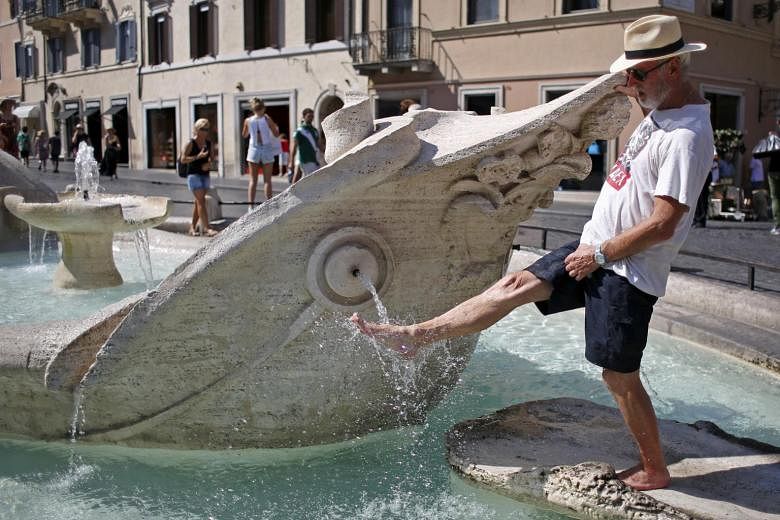Tourists visiting attractions in Rome have been caught frolicking in fountains and flowerbeds, especially as temperatures climb in summer.
Mayor Virginia Raggi said people caught picnicking or camping out on the fountains' pedestals, putting their feet in the water or going for a swim would be fined up to 240 euros ($372).
These fines will be imposed throughout the summer season until Oct 31, but there are concerns that bad behaviour from tourists can happen any time.
Here are several other places with regulations to protect tourist hotspots.
1. Fines for vandals at the Great Wall of China
It is one of the seven wonders of the world, but is crumbling away. Tourism and the theft of bricks - for buildings or as souvenirs - have taken its toll on the attraction.
Some 30 per cent of the wall has disappeared over time, according to media reports.
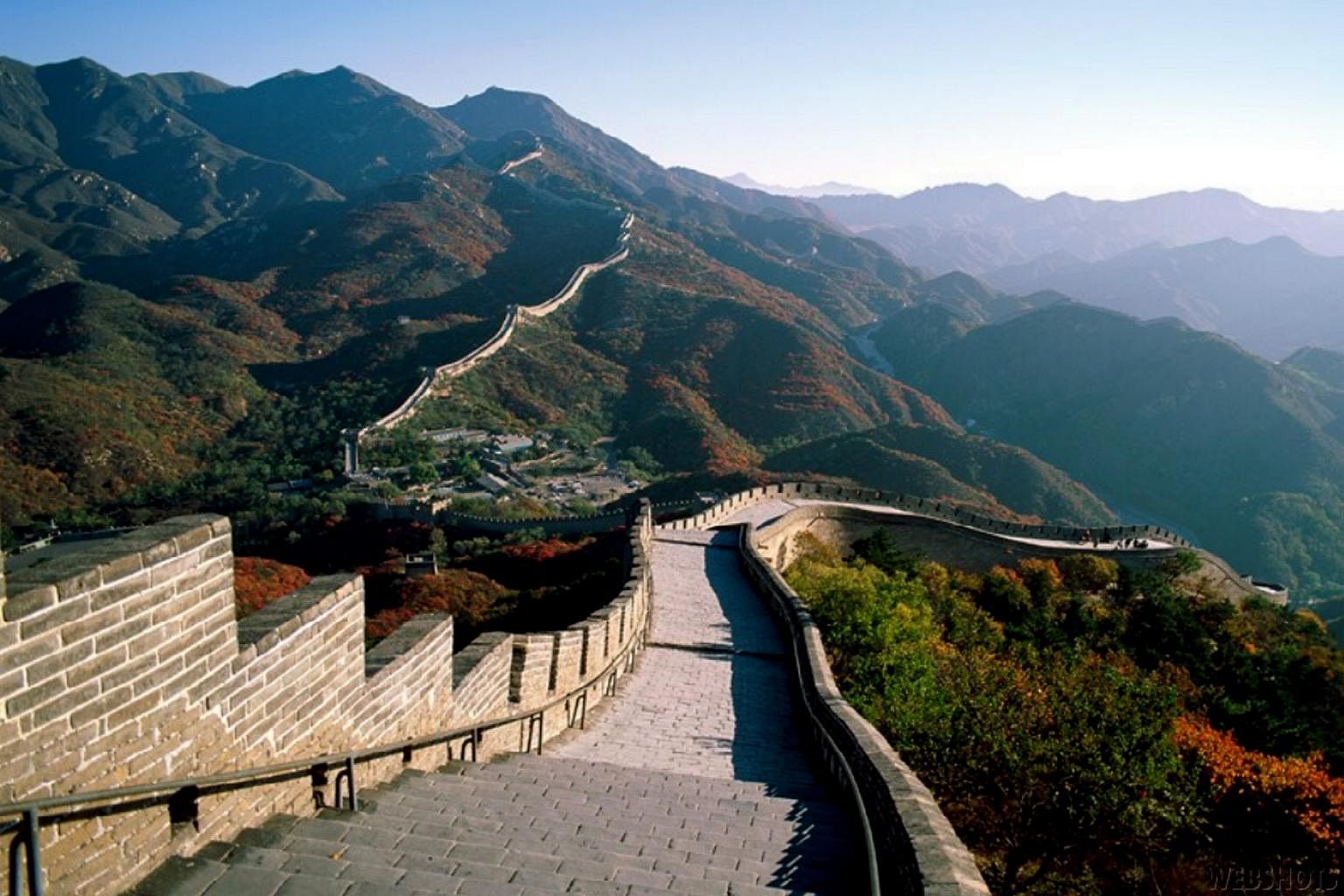
Fines can go up to 500,000 yuan (S$101,800) for institutions and companies, or 50,000 yuan for individuals, depending on the damage.
Last year, there was public outcry over a video posted online of a man pulling out bricks and kicking the wall .
2. Ropes between visitors and Stonehenge in the United Kingdom
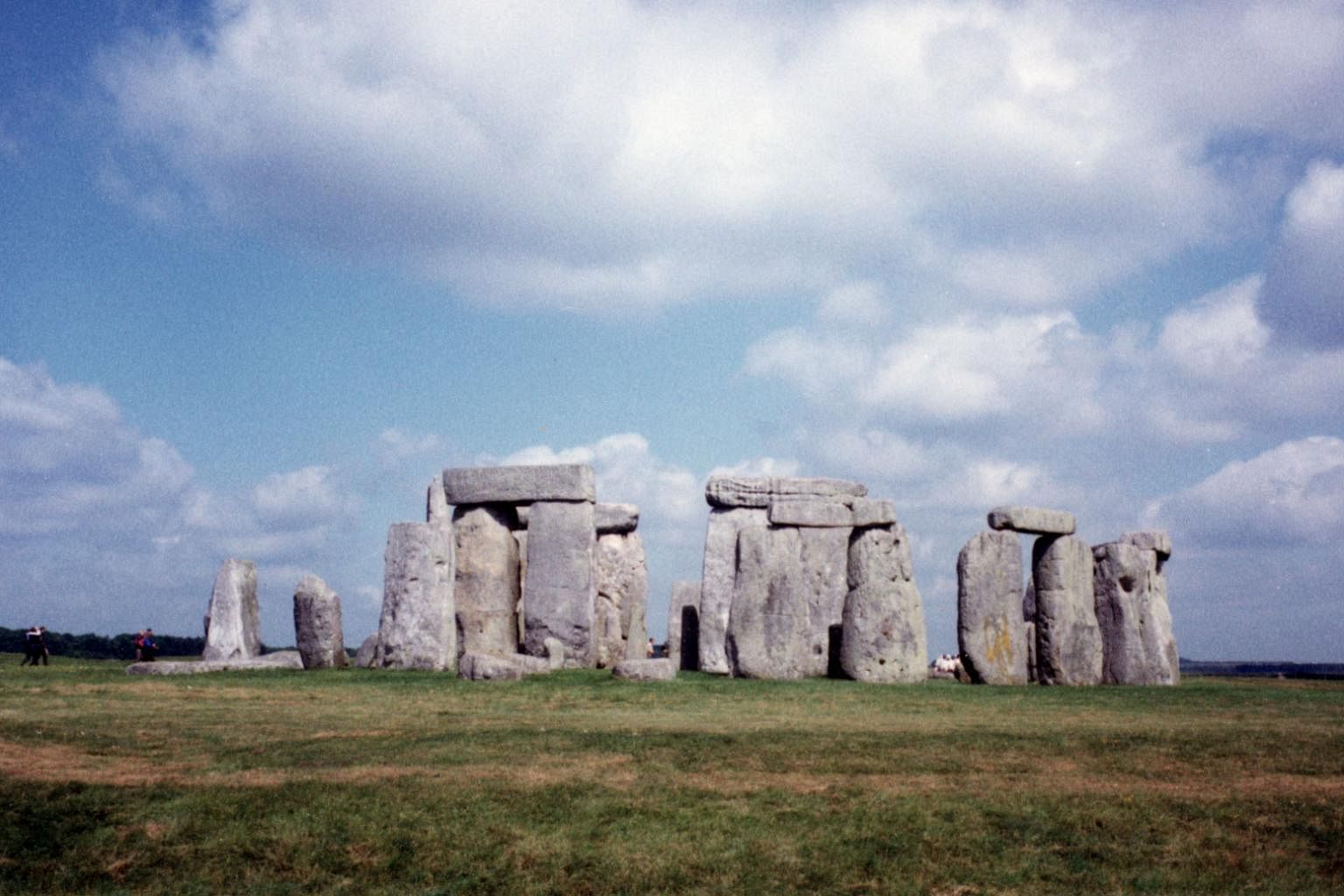
Since 1977, a rope puts distance between visitors and the nearly 5,000 year old giant rocks.
Back in the 1900s, people could walk right up to the rocks and even chisel at it for a piece of souvenir. Visitors would also climb onto the rocks or trample on the grass around the rocks.
Despite the move to rope off the stones, vandalism has not stopped completely. In 2008, vandals chipped off some of the rock, and in 2013, a smiley face was painted on one of the rocks.
3. Time-specific tickets to Machu Picchu in Peru
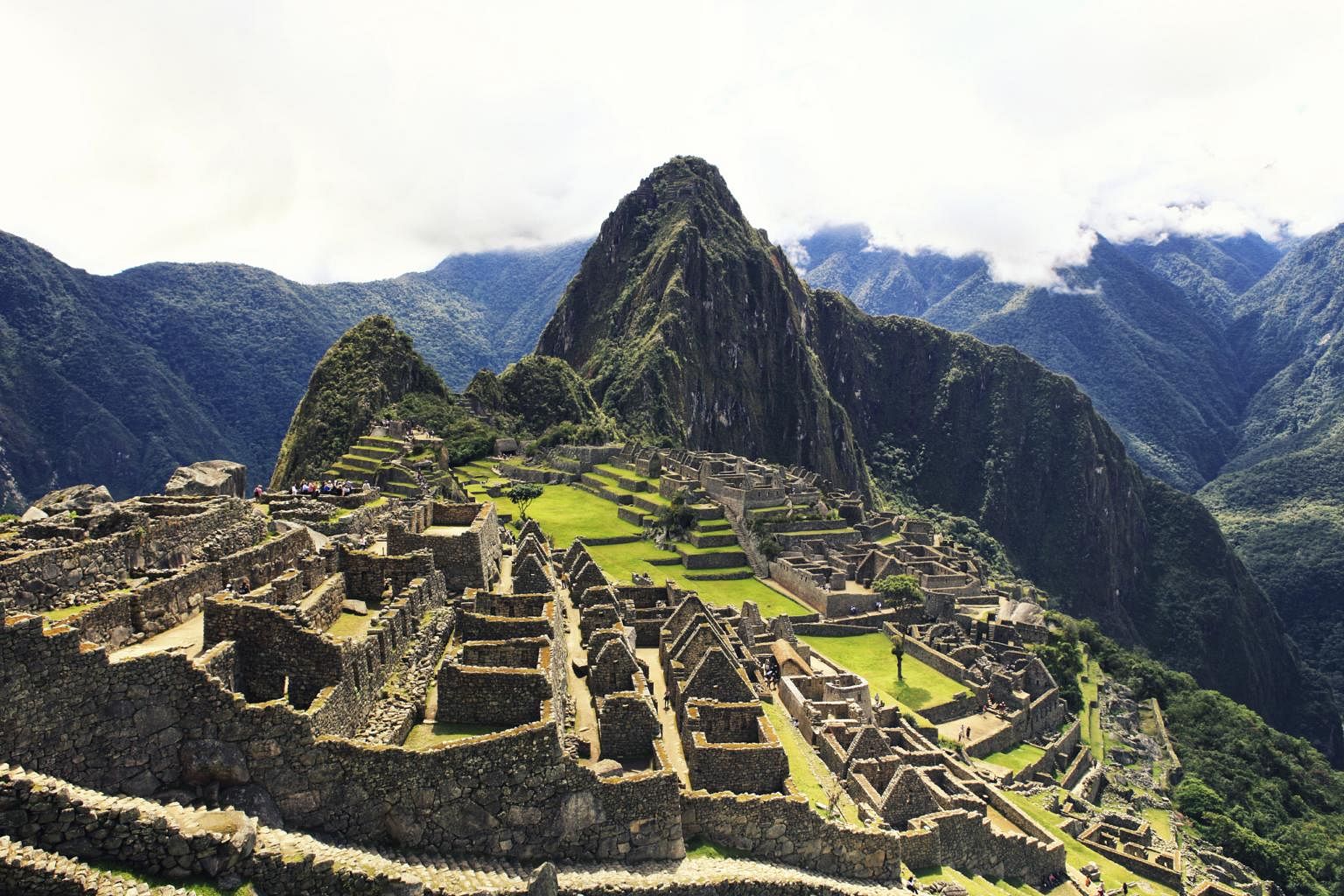
The authorities are attempting to control the number of people who access the site at any one time with new rules set to kick in next month.
Tickets will have either a morning or afternoon entrance time and visitors cannot re-enter the site.
The Peruvian authorities say it is for the purpose of conservation - the morning slot has 3,267 tickets and the afternoon slot has 2,673 tickets.
But with a total of 5,940 tickets available daily, some critics have noted that the site now atttracts only about 3,800 visitors daily.
Other rules that will come into effect include compulsory official guides and pre-determined routes to follow according to the tickets purchased.
4. Koh Tachai in Thailand closed due to overcrowding
The popular island known for its white beaches was closed indefinitely from October last year to allow its natural surroundings to recover.
Coral reef around the island, which previously flourished, suffered environmental damage from overcrowding of tourists.
One of the beaches on the island, which could hold up to 70 people, reportedly hosted well over 1,000 tourists.
The closure was ordered by Thailand's Department of National Parks, Wildlife and Plants Conservation.
5. Barcelona and Iceland to keep home rental costs down for residents
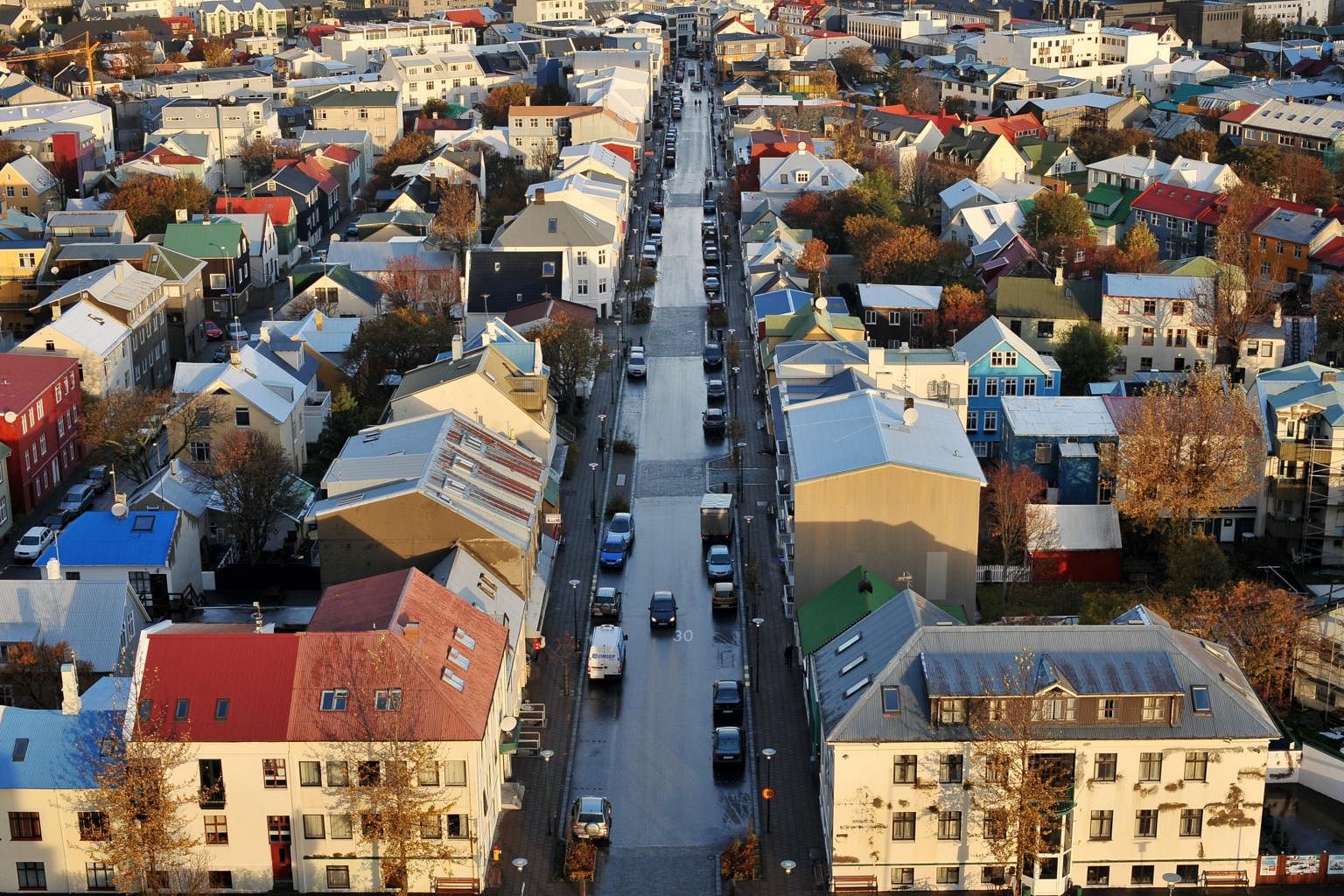
To prevent home rentals by tourists from driving rental costs up for residents, the authorities in Barcelona and Iceland have approved changes to laws on the rental of property.
Landlords have found it more attractive to rent out flats to tourists as they could charge a lot more compared to if they were to rent it out long-term to tenants. This has also resulted in higher rental costs for those looking for homes.
The laws are expected to take effect in the Spanish city in 2019. In central districts, no new places of accommodation will be allowed to open - and any accommodation option that closes cannot be replaced by new rental space for tourists.
In Iceland, properties rented out in a non-commercial way, such as through Airbnb, are capped at 30 consecutive days and a maximum of 90 days per year per person. The income earned through this rental also cannot exceed 2 million Krona (S$27,400).
Sources: TravelChinaGuide, Smithsonian.com, The Guardian, The Local, Library of Congress
